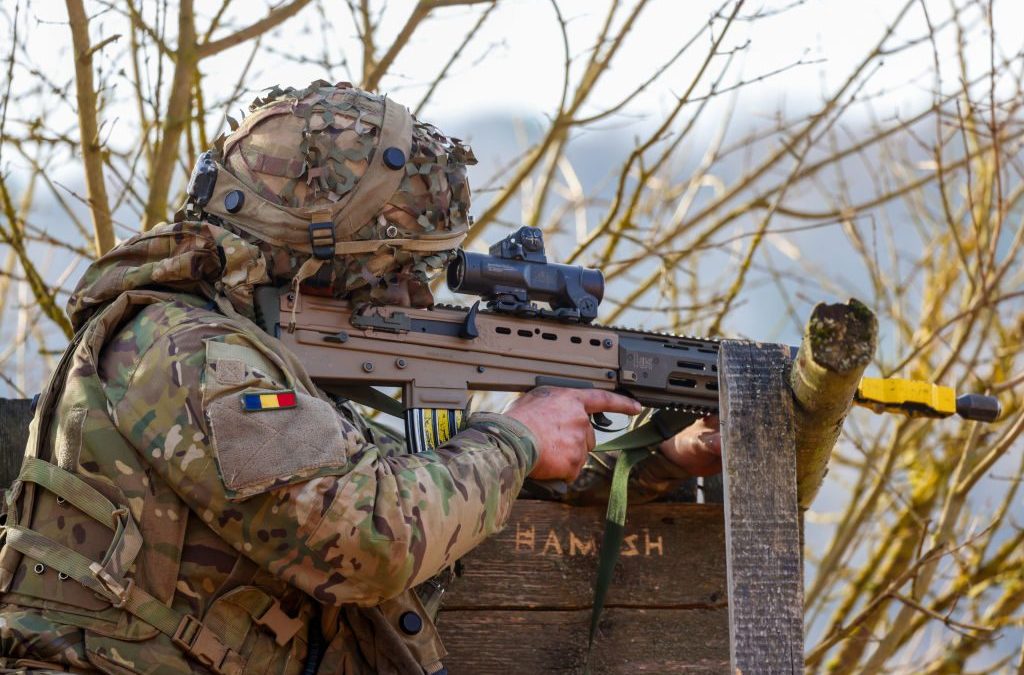DMS and NHS will boost medicines and healthcare equipment designed to treat Armed Forces personnel in a chemical or nuclear emergency
The UK will stockpile military medical supplies to prepare for a possible nuclear attack under plans to ramp up its defences.
Medicines and healthcare equipment designed to treat Armed Forces personnel in a chemical or nuclear emergency will be bolstered following advice from the Government’s flagship defence report.
NHS services – as well as military healthcare – must be equipped to “deal with mass military casualties” in the world of global threats, the Strategic Defence Review has said.
The review was backed by Prime Minister Sir Keir Starmer, who pledged to take forward all its recommendations.
Both the Defence Medical Services (DMS) and NHS must have capacity to meet potential needs in “the most extreme circumstances”, the report stated.
And the Government must “invest in medical evacuation and medical stockpiles at a scale that matches military commitments and deployments, as well as critical capabilities like counter-chemical, biological, radiological, and nuclear equipment”, the report stated.
The review did not go into detail as to what supplies would be needed and government sources said a review of capacity and capability – to ensure the “demands of warfighting and other strategic health emergencies” are prepared for – will inform what is needed.
But a 2023 policy report by the World Health Organization (WHO) advised governments to stockpile medicines that treat over-exposure to ionising radiation.
Medicines listed included KI tablets (potassium iodide) to reduce the risk of iodine buildup; decorporation agents to assist the body in excreting toxic substances; alkylating agents, which make up some cancer treatments; as well as drugs to prevent diarrhoea and nausea; and antibiotics.
In addition to pharmaceutical supplies, governments are advised to ensure supply of personal protective equipment (PPE), trauma kits for possible burns, fluids and pain medication.
“Counter-chemical, biological, radiological, and nuclear [CBRN] equipment” is likely to include such items as protective CBRN suits, gas masks and air sampling kits, as well as decontamination equipment such as lotions and portable field showers. Fullers earth, a type of clay that has been used as a decontaminate for 75 years, is understood to still be a back-up option.
The review, published on Monday, said that protecting the health and operational medical care of armed forces was “vitally important to deterrence and defence” by ensuring personnel are able to endure conflict.
But it also warned that this was not just the responsibility of the Ministry of Defence.
“Defence is inextricably dependent on the NHS for the provision of secondary and tertiary care by design,” it said.
Rebuilding medical capacity and capability together with the NHS is “critical”, the review added.
Ex-commander of Joint Force Command and one of the review authors, General Sir Richard Barrons, told The i Paper the NHS would – along with the Armed Forces – have to adapt to the new reality posed by global threats.
“The NHS thinks about mass casualties – it thinks about plane crashes and arena disasters – but it’s not been required to think about what war means for the NHS. Our view would be, it does need to think about it,” he said.
“Some very senior medics took part in the review who are perfectly capable of advising that. There’s no point fixing defence and then not suggesting the rest of the important bits of civil society don’t also need to be alert to this new world. But that’s not a matter for the Ministry of Defence.”
The Government has pledged to accept all 62 recommendations in the review.
Starmer said on Monday that “a step change in the threats we face demands a step change in British defence to meet them”.
